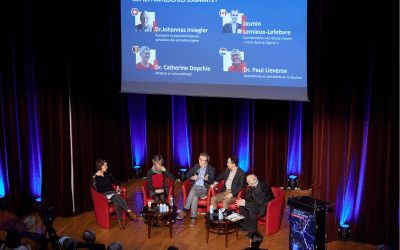A case has been filed with the European Court of Human Rights (ECHR) where the recognition of dual maternity has been refused for 2 individuals of the same sex, in a civil partnership, who “shared the maternity”(1).
The claimants are 2 female homosexuals. Their child was born by IVF with one of the women donating her ovules. The fertilization was performed with an anonymous sperm donor, and the embryo was then implanted in the second woman’s uterus. The surrogacy was performed in Belgium, since this technique is only allowed for infertile male-female couples in Germany.
Under German law, the mother is designated as the one who gives birth to the child. Thus the surrogate mother was recognized as mother, and the “genetic or biological” mother (who donated the ovule) then adopted the child, which entitled her to parental rights, since adoption of a child by a partner of the same sex is allowable.
In fact, both women want to be recognized as being the child’s mothers. The genetic mother requested to be named as “second parent” on the birth certificate, but the German authorities refused. The claimants say the refusal for dual maternity constitutes discrimination based on their sexual orientation and infringes upon their rights and the child’s rights to private family life. So they called upon the ECHR.
The European Centre for Law and Justice (ECLJ) was authorized by the European Court of Human Rights to submit written declarations for the case.
The Centre emphasized that « By not recognizing the dual maternity on the child’s birth certificate which would give the impression that the child was conceived by two women, it [German law] is nevertheless acting in favor of the child’s rights who would suffer a serious injustice as for their legitimate need to know their origins and their right to be raised by their father and mother. Thereby German law respects case law but also the international texts and principles from the Council of Europe regarding filiation.”
The ECLJ also underlines “the serious consequences of this case”.
If Germany is convicted in this case, it would be another step towards permitting surrogacy. The technique used by the claimants qualifies as surrogacy since one woman carried a child in her uterus without being genetically related, and the child was conceived with an ovule from a different woman”.
- F. case and others in Germany



